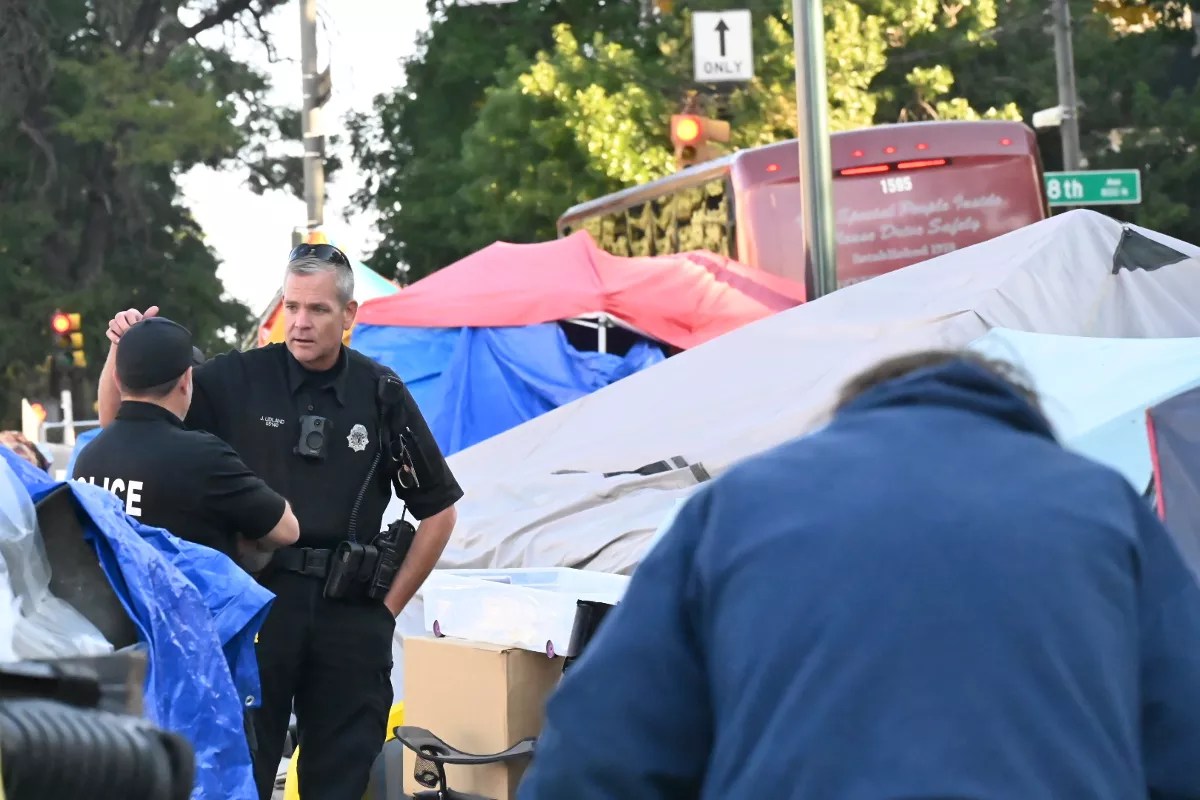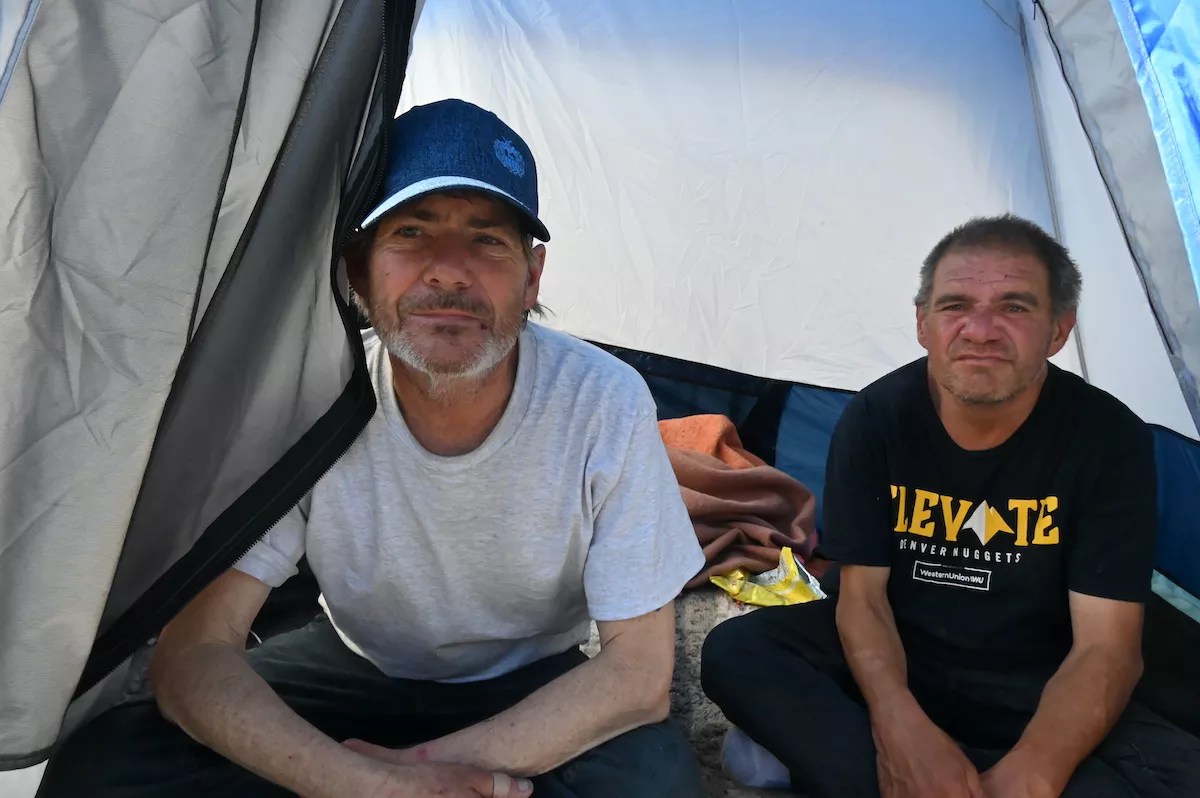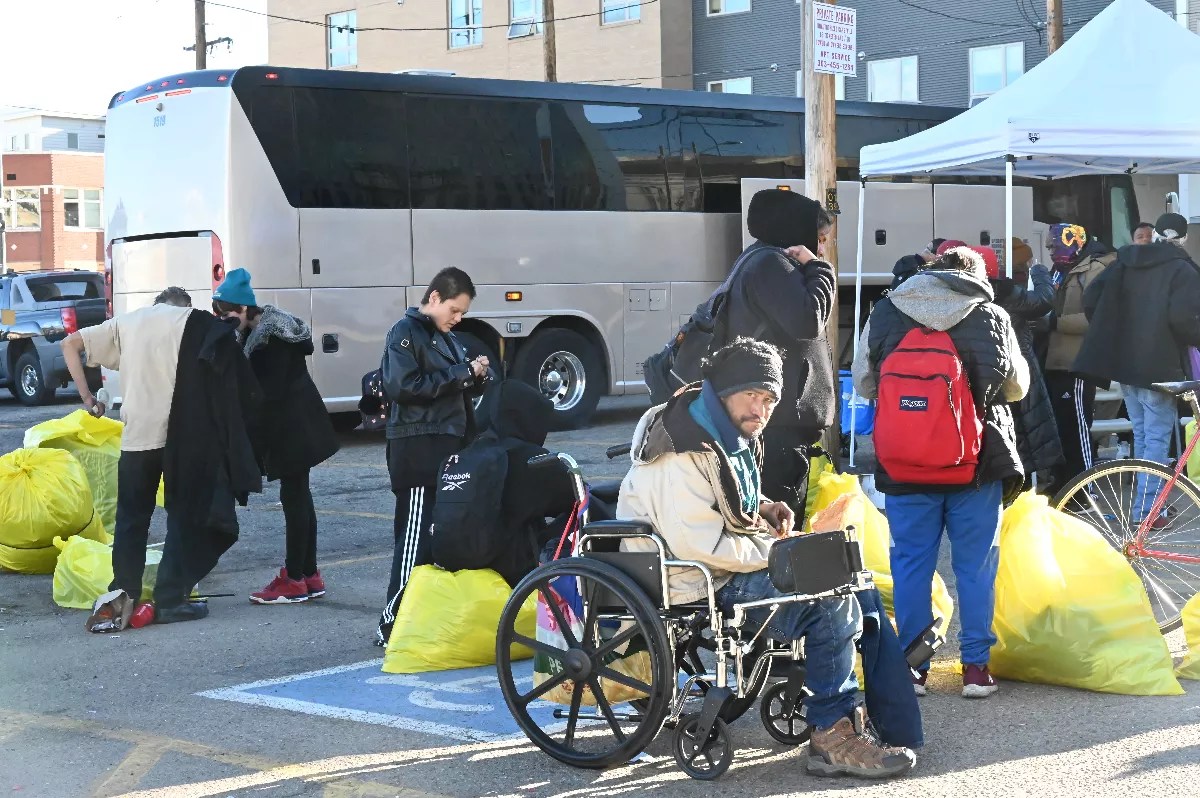
Bennito L. Kelty

Audio By Carbonatix
A new executive order by President Donald Trump aims to redirect federal funding away from the kind of “housing first” programs that are popular with Denver nonprofits and city agencies.
Trump instead wants to fund efforts to enforce camping bans, put mentally ill homeless residents in “long-term institutional settings” and restrict resources for homeless drug users, according to the “Ending Crime and Disorder on America’s Streets” order issued on Thursday, July 24.
“Endemic vagrancy, disorderly behavior, sudden confrontations and violent attacks have made our cities unsafe.” Trump wrote in the order. “The federal government and the states have spent tens of billions of dollars on failed programs that address homelessness but not its root causes…my administration will take a new approach focused on protecting public safety.”
The order calls on the U.S. Attorney General, Health and Human Services (HHS) and the Department of Housing and Urban Development (HUD) to axe grants for “housing first” programs and increase funding for jurisdictions that arrest people for open drug use, urban camping and loitering while also reinstituting civil commitment, or the practice of detaining people with mental illness “in appropriate facilities.” Civil commitment is often restricted at the local level by case law and consent decrees, the order notes.
“We actually agree with President Trump that we need to focus on helping people struggling with addiction and mental health issues get into long-term treatment,” Jordan Fuja, a spokesperson for the Denver mayor’s office, says in a statement. “But relying on enforcement and the jail system to do this just won’t work. We need federal funding for real, community-based treatment options.”
Housing First in Crosshairs
The housing-first approach is at the heart of the City of Denver’s All In Mile High program, which brings people indoors and then relies on case management to connect them to permanent housing or treatment for drug abuse, mental illness or other issues.
“Over the last few years, Denver has created a blueprint for how cities across the country can address this crisis that, to many, seems unsolvable,” Fuja adds. “Our work to permanently close encampments and move people into transitional housing and then permanent housing has resulted in the largest multi-year decrease in street homelessness of any American city.”
All In Mile High, which Denver Mayor Mike Johnston started to combat homelessness, modeled its approach after programs run by nonprofits like the Colorado Coalition for the Homeless (CCH), Colorado Village Collaborative and Salvation Army, among others. Housing-first programs rely on transitional housing, or shelters where people can stay for extended periods while they find a stable income and housing.
Trump’s order tells HUD to prioritize “ending support for ‘housing-first’ policies that deprioritize accountability and fail to promote treatment, recovery and self-sufficiency” as a way to “increase accountability” for grants funding transitional housing.
According to CCH, one of the largest nonprofits addressing homelessness statewide, the “harmful and illegal” order “cruelly targets people experiencing homelessness.”
“The order prioritizes criminalization and involuntary civil commitment of those forced to live on the streets due to the federal government’s failure to invest in housing solutions that could have solved homelessness decades ago,” CCH says in a statement. “Against best practices and rigorous studies and data, the order directs [HUD] to de-prioritize and de-fund evidence-based programs like housing first…the data-proven solution to homelessness is safe, affordable housing with appropriate wrap-around services.”
HUD will also require federally funded homelessness and housing programs to “collect health-related information” of homeless residents and share the data with law enforcement “to provide appropriate medical care.” According to CCH, the data collection will lead to “further violating the privacy rights of those experiencing homelessness.”

Randall McAda and Michael Dixon sit in their tent near 8th Avenue and Navajo Street in 2024.
Bennito L. Kelty
Harm Reduction Under Fire
Trump’s executive order also demanded that HUD only fund housing programs if they require homeless residents with a history of substance abuse or mental illness to accept treatment. Trump claims it’s the only way to “increase accountability” and “promote treatment, recovery and self-sufficiency,” but the Denver mayor’s office says funding affordable housing is more important to solving homelessness than treating addiction.
“While addiction is a real and pressing issue, it is far from the only cause of homelessness,” according to Fuja. “We need real reform in bringing down the cost of housing and ensuring that folks aren’t more than one unexpected expense away from being on the streets. We hope the Trump administration will join us in prioritizing this need.”
The order goes after harm reduction and safe consumption sites, which are meant to reduce overdose deaths by providing monitored areas for drug use. Trump wrote that these sites “fail to achieve adequate outcomes” and “facilitate illegal drug use.”
Denver is home to the Harm Reduction Action Center, which tries to prevent overdoses and reduce the transmission of HIV and Hepatitis C by providing clean needles and pipes as well as healthcare information at its site at 112 East 8th Avenue. According to Lisa Raville, the executive director at the Harm Reduction Action Center, “public health and medical experts agree that syringe, pipe access programs are the gold-standard of care to reach people who use drugs with resources and education.”
“Harm reduction is under attack in the United States and right here in our very own community. We are in the worst overdose crisis we have ever been in, with the most unregulated drug supply we have ever seen. Our services have never been more critical.” Raville says. “Our city, state and federal officials continue to double down on the worst ideas of the drug war, which are incarceration and criminalization. That has never been shown to work; however, it is always prioritized over science, data, and evidence-based interventions.”

Homeless residents at an encampment in the Ballpark District prepare to board a bus that will take them to transitional housing on a December morning in 2023.
Bennito L. Kelty
Trump Wants More Sweeps
The U.S. Attorney General will also have to make sure it has funding to support “encampment removal efforts” in cities where “public safety is at risk and state and local resources are inadequate,” per Trump’s order.
The directive likely won’t change how often Denver sweeps encampments, says Andy McNulty, a civil rights lawyer who helped secure the 2019 Lyall Settlement that requires the City of Denver to give homeless residents a week’s notice before a sweep.
The Lyall Settlement resulted from a class-action lawsuit against the city by Denver homeless residents who claimed sudden sweeps violated their right to due process. The city still follows guidelines to give proper notice when sweeping encampments, except when done for public health or safety reasons. According to McNulty, Trump’s order will “have no effect on the Lyall Settlement” as the executive order is “not anything other than guidance on a federal agency. It doesn’t affect the judiciary.”
McNulty says the city doesn’t have to comply unless it wants to risk losing federal funding for homelessness initiatives.
“It’s going to totally depend on whether the City of Denver decides to kowtow to this lawless administration in Washington,” he says. “They’re not required to do that, but the Trump administration might pull funding if they don’t. …That’s where the main impact is going to be, in the way federal funds are distributed to the City of Denver and to its partners to provide services to houseless folks.”
McNulty argues that the City of Denver is “already criminalizing homelessness.” He notes that Denver Police often enforce the camping ban and get homeless residents to move with threats of arrests or property seizures.
“The idea that this is some new Trumpian principle that we should criminalize people for just trying to exist outside is not true. It was implemented by the Hancock administration and has been continued by the Johnston administration,” McNulty says of Denver leadership. “This is not a Republican idea. It’s a bipartisan idea, in our city at least, that houseless folks should be criminalized.”
Trump’s order “leaves many questions unanswered about how it will be implemented,” according to a July 25 statement by the Metro Denver Homelessness Initiative (MDHI), which coordinates funding and strategies for addressing homelessness across the metro area.
“We are monitoring updates and will continue to engage with local, state, and federal partners to better understand any potential impact,” a statement from the MDHI reads. “Our priority remains supporting individuals and families in accessing safe, stable housing and the resources needed to thrive.”